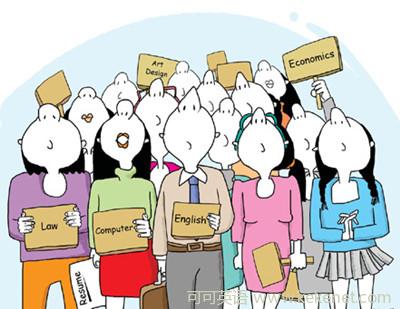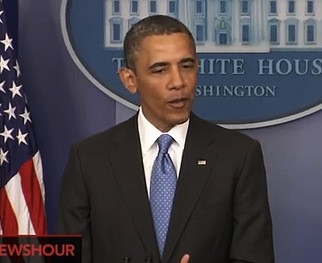JEFFREY BROWN:You want to respond to that, David?
DAVID CAY JOHNSTON:Well, I think we can justify higher rates way up.
You know, we talk about this as a quarter-million dollar threshold. We have people in this country who make a million, three million dollars a day and, they're taxed at the same rate as people who are in the quarter-million, half-million dollar rate—income level.
And I think we need to recognize that the system doesn't capture people at the very, very top. And the Bush administration in 2005 acknowledged that—they said, we have made the system more progressive up to the 99.9 percent level.
Well, the top 10 percent make almost as much as the bottom half of Americans. We should focus a lot on them. But we also want to broaden base. I agree entirely with that. And I think we should try to get rates as low as we can to bring in the necessary revenues.
DOUGLAS HOLTZ-EAKIN:So, I think David Cay—this is exactly the discussion that I would love to hear on Capitol Hill, because what he is saying is, yes, we need to raise the revenue. Taxes have to pay the bills of the government. That is the main job.
And they should be fair. We're going to try to get and make sure the upper end pays taxes because the money there. That's a set of priorities. That tells you what a tax code looks like in Mr. Johnston's mind. At this point in time, I think a fair argument can be made that the second priority, the one past raising the revenues, should be let's grow more rapidly.
We have very high unemployment. It's been around a long time. We're growing at rates people that don't like. So you're going hear voices that say, OK, I understand that. But in the list of things, when you can't do everything, let's have a tax code that supports economic growth. That affects individuals, but it also affects all those small businesses that are taxed as individuals, and it affects the corporate code.
So the tax reform debate gets shaped by what your objectives are in a deep way.
JEFFREY BROWN:And speaking of the corporate code, David Cay Johnston, because I know this has been a big issue for you, briefly, tell us what the problem is.
DAVID CAY JOHNSTON:Well, just 2,600 of the six million corporations in America own 80 percent of the assets.
And under a 1986 law, they can build up unlimited amounts of cash offshore. And they're allowed to siphon profits earned in the United States out of the country as expenses. They pay themselves to their foreign subsidiaries for the use of patents and intellectual properties that they own.
This is damaging our economy. It's encouraging companies to invest elsewhere. And our rate is too high, given that the rest of the world has lowered their rates. So—but the worst thing we could have, I think, Jeff, would be to lower the rate and not fix these fundamental problems that allow companies to game the system.
JEFFREY BROWN:All right, and you're agreeing at with least part of that.
DOUGLAS HOLTZ-EAKIN:Oh, yes, certainly. I think we have a corporate tax code that hits the worst of all worlds. It's not helping us compete. It's not helping us grow and it raises no revenue. That's a terrible code. So ...
JEFFREY BROWN:And the reason for this is again going back to what you were saying before about the interest and...
DOUGLAS HOLTZ-EAKIN:Well, it's in part these international transactions.
So if you think about where you could get bipartisan consensus, I think you could get it on, let's get the rate down to 25 percent. Ours is too high. Let's do it, say, in a revenue-neutral fashion. Let's not have individuals have to pay for corporate reform. Let's make the corporations do their own reform.
And then you get to the tough part. How do you want to handle the international transactions? I think the solution to that is, let's have a tax code that matches the rest of the developed world and tax companies largely on what they do in the U.S., leaving their Brazilian operations to be taxed by Brazil, and then pair that, before Mr. Johnston jumps in, with a set of geeky rules known as base erosion rules that will be so tough that he will never get to write another book on international tax evasion.
JEFFREY BROWN:All right, I'm not going to let him...
We're going to end the discussion, but we're going to watch carefully to see if this continues on Capitol Hill, as you have suggested.
Douglas Holtz-Eakin, David Cay Johnston, thanks very much.
DAVID CAY JOHNSTON:Thank you.





















